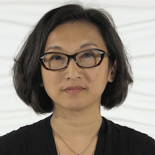Foundations in Bilingual and Biliterate Learning and Development
Presented by Laura Epstein and Betty Yu
12-Month Subscription
Unlimited access to:
- Thousands of CE Courses
- Patient Education
- Home Exercise Program
- And more
Meet your instructors

Laura Epstein
Laura Epstein, Ph.D., CCC-SLP, is an Associate Professor, Program Coordinator and School Internship Coordinator at San Francisco State University. Her research and clinical focus is on Spanish-bilingual language development/disorders and inclusion. She was California Speech-Language-Hearing Association Convention Program…

Betty Yu
Betty Yu is an Associate Professor in the Department of Special Education & Communicative Disorders. Before joining the faculty at San Francisco State, she practiced as a speech-language therapist primarily serving young children and their families in minority communities. Her research interest is in how children's language…
Chapters & learning objectives

1. Bilingualism and Its Developmental Outcomes
The purpose of the chapter is to introduce foundational concepts in bilingual development, including what is bilingualism; how it develops; the factors that influence development; and the unique linguistic and cognitive competencies associated with bilingualism.

2. Bilingualism and Biliteracy
Children from minority-language backgrounds have literacy experiences as an integral part of their language development, but these literacy experiences are different from those of majority-language children. It is important to acknowledge the literacy experiences of minority-language children, while at the same time, building on these to support literacy skills in both languages.

3. Heritage Language Maintenance
Families are at the center of bilingual and biliterate transmission, also called heritage language maintenance. Language and literacy co-develop through everyday family interactions. Bilingualism and biliteracy are unlikely to develop or develop fully without family involvement. In this chapter, we discuss family perspectives on bilingualism and biliteracy and how to work with families to support their own goals for their children.

4. Q&A Session
A question and answer session with the instructors and a student in her clinical fellowship year discussing what was covered in the course.


